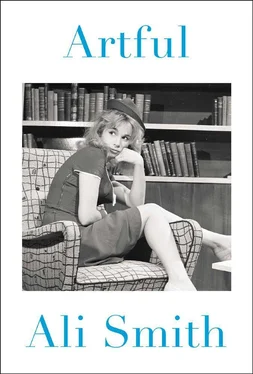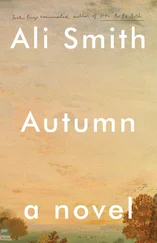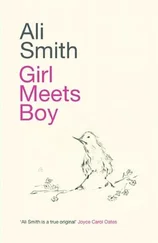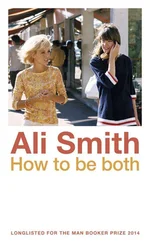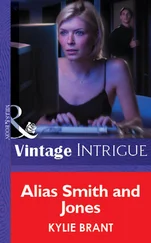On edge
The quote from Leonora Carrington comes from a story called The Stone Door, written in the 1940s. Doris Day’s Let the Little Girl Limbo, written by Barry Mann and Cynthia Weil, was recorded in 1963 but didn’t reach the public’s ears till 1997; I first heard it on an album from the series of rescued pop music from the Columbia vaults, Where the Girls Are (Vol. 5). Ady Fidelin, Man Ray’s lover at the time of the photograph taken by Roland Penrose of Miller, Carrington, Eluard and her, was a dancer; she went on to become the first black model to feature not just in Harper’s Bazaar (1937) but (according to a 2007 New York Times article) in any major fashion magazine. Nusch Eluard, an artist and performer in her own right, was the poet Paul Eluard’s wife; she and her husband, members of the Resistance during the Second World War, were hounded by the Gestapo, and Nusch (whose fragility and malnutrition after the pressure of the war can clearly be seen in Lee Miller’s late photos of her) died in 1946 at the age of forty. The famous Kafka quote comes from his letter to Oskar Pollak, January 27, 1904; Hitchcock talks about his plate-glass floor/ceiling and his thoughts on the whodunnit in a 1966 Granada tv program called Cinema, introduced by Mike Scott; the story of Dalí diving comes from Antony Penrose’s 2001 book about his father, Roland Penrose: The Friendly Surrealist; the Hopkins lines come from the sonnet whose first line is ‘No worst, there is none. Pitched past pitch of grief.’ Edwin Morgan’s Orphean poem is part iii of a poem called Rider, from his 1973 collection, From Glasgow to Saturn; Katherine Mansfield wrote about writing and acid in a letter to John Middleton Murry on May 19, 1913 and jotted down Robert Louis Stevenson’s phrase ‘literary vagrancy’ in her notebooks; Stevenson suggested arriving was a lesser experience than traveling hopefully in 1881, in Virginibus Pueresque; and the Elizabeth Hardwick quote comes from her novel Sleepless Nights. The Greek myth about the musician in hopeless competition with Apollo is the story of Marsyas; the description of the Michelangelo drawing is of his Il Sogno (c. 1533); the Werner Herzog documentary about Chauvet is called Cave of Forgotten Dreams (2010). I owe a big thank-you to Artemis Loi, who kindly helped with all things Greek.
On offer and on reflection
The Tove Jansson story is The Golden Calf, and is the first story in her 1968 short story collection, Bildhuggarens Dotter, translated into English in 1969 as Sculptor’s Daughter. I hope Casanova did actually say this thing about women and pleasure; the only source I can find for it (apart from a 1984 book called Taking It Like a Woman by Ann Oakley, where it also appears to have been quoted) is the novel I first read it in, Elizabeth Hardwick’s Sleepless Nights; because of this, I can’t credit a translator, but I can send readers to this Hardwick novel and that’s another pleasure in the handshake between sources. Jan Verwoert’s comments on Giorgio Agamben, art, and profanity come from Frieze, Issue 129, March 2010. An aside: if I think of a contemporary inheritor of this fused literary force of coincidence/generosity found in the work of Dickens and Shakespeare, it’s Kate Atkinson. The two song lines here about the cup o’ tea for all are from Lionel Bart’s Consider Yourself; the writer whose work first suggested to me this confluence of notions of kindness and family in the word kind is Sebastian Barry; the combination is one of the driving forces of his fiction, drama, and poetry. The Marlowe translation of the Ovid Elegy is from Elegy 8: He curses the bawd who has been instructing his mistress in the arts of a whore. The story goes that Marlowe’s translation of Ovid’s Elegies of Love, done in the early 1580s when he was still an undergraduate at Cambridge, was thought so ‘unsemely’ by the Archbishop of Canterbury when published that it was banned and burned. All my dictionary definitions throughout these talks come from The Chambers 20th and 21st Century Dictionaries; the Michael Ondaatje quote comes from The Cat’s Table (2011); I found the Oscar Wilde story (which Wilde called The Disciple) in Richard Ellmann’s 1987 biography; the Atwood quote about Alice and the mirror is from Negotiating with the Dead; George Mackay Brown talked about the leafing of the imagination in an aside in an article about short story writing in the Orcadian, December 1983; David Constantine allowed me to quote from a piece he was writing, at the time of these lectures, about the crucial purpose and workings of the humanities (in an era where the fact that studying the humanities has to be rhetorically and economically justified tells us a great deal about contemporary state, mind-set, and philosophy); last of all, the piece about the thread of these adventures nearing its end is from a page or two before the close of Dickens’s Oliver Twist.
Picture Credits
Jane Austen’s Fiction Manuscripts: A Digital Edition www.janeausten.ac.uk. Used by permission. With thanks to the Bodleian Library Image Services Department.
‘Studies for a Virgin and Child,’ by Michelangelo © The Trustees of the British Museum.
‘Jupiter und Io,’ by Antonio Allegri, called Correggio © Kunsthistorisches Museum, Vienna.
‘Four Women Asleep,’ Lee Miller, Leonora Carrington, Ady Fidelin, Nusch Eluard, Lambe Creek, Cornwall, England, 1937, by Roland Penrose © Roland Penrose Estate, England 2012. The Roland Penrose Collection. All rights reserved.
‘Pastoral’, by Leonora Carrington © ARS, NY and DACS, London 2012. With thanks to Susan Aberth for her help in sourcing the image.
Actress Aliki Vougiouklaki from the movie ‘Punishment Came from Heaven’ by Finos Film, 1959, Greece. With kind permission from Yiannis Papamichail, the son of Aliki Vougiouklaki.
Mercury, from Pompeii, c.50–79 AD (fresco), Roman, (1st century AD) / Museo Archeologico Nazionale, Naples, Italy / Giraudon / The Bridgeman Art Library.
‘Autumn Tree,’ ‘Winter Tree,’ ‘Spring Tree,’ and ‘Summer Tree,’ by Sarah Pickstone. With warm thanks to Sarah for her permission to use the paintings in this book.
Text Permissions
‘Not Waving but Drowning,’ by Stevie Smith, copyright (c) Estate of James MacGibbon, by permission.
‘Not Marble: A Reconstruction,’ by Edwin Morgan from Collected Poems . 1990. Used by permission of Carcanet Press Limited.
‘Rider,’ by Edwin Morgan from New Selected Poems . 2000. Used by permission of Carcanet Press Limited.
‘The Wedding Party,’ by Boris Pasternak. Translated by Edwin Morgan, from Collected Translations . 1996. Used by permission of Carcanet Press Limited.
‘Spring and All,’ by William Carlos Williams from Collected Poems Volume 1. 2000. Used by permission of Carcanet Press Limited. ‘Spring and All,’ by William Carlos Williams from The Collected Poems: Volume I, 1909–1939 , copyright ©1938 by New Directions Publishing Corp. Reprinted by permission of New Directions Publishing Corp.
‘I thank You God for most this amazing,’ by E.E. Cummings. Copyright © 1950, 1978, 1991 by the Trustees for the E.E. Cummings Trust. Copyright © 1979 by George James Firmage, from Complete Poems : 1904–1962 by E.E. Cummings, edited by George J. Firmage. Used by permission of Liveright Publishing Corporation.
‘No More’ and ‘Ars Poetica,’ by Czeslaw Milosz from New and Collected Poems 1931–2001 . Copyright © Czeslaw Milosz Royalties Inc., 1988, 1991, 1995, 2001. Reprinted by permission of HarperCollins Publishers and Penguin Books Ltd.
‘In My Craft or Sullen Art,’ by Dylan Thomas from The Poems (Orion) and quoted with the permission of David Higham Associates. ‘In My Craft or Sullen Art,’ by Dylan Thomas from The Poems of Dylan Thomas , copyright ©1946 by New Directions Publishing Corp. Reprinted by permission of New Directions Publishing Corp.
Читать дальше
